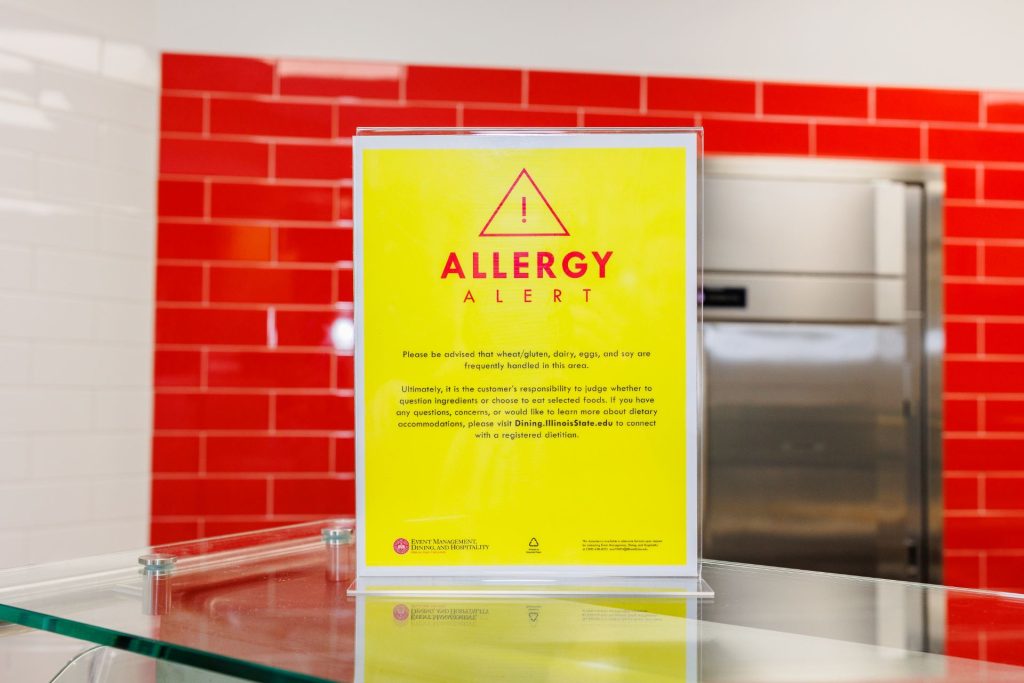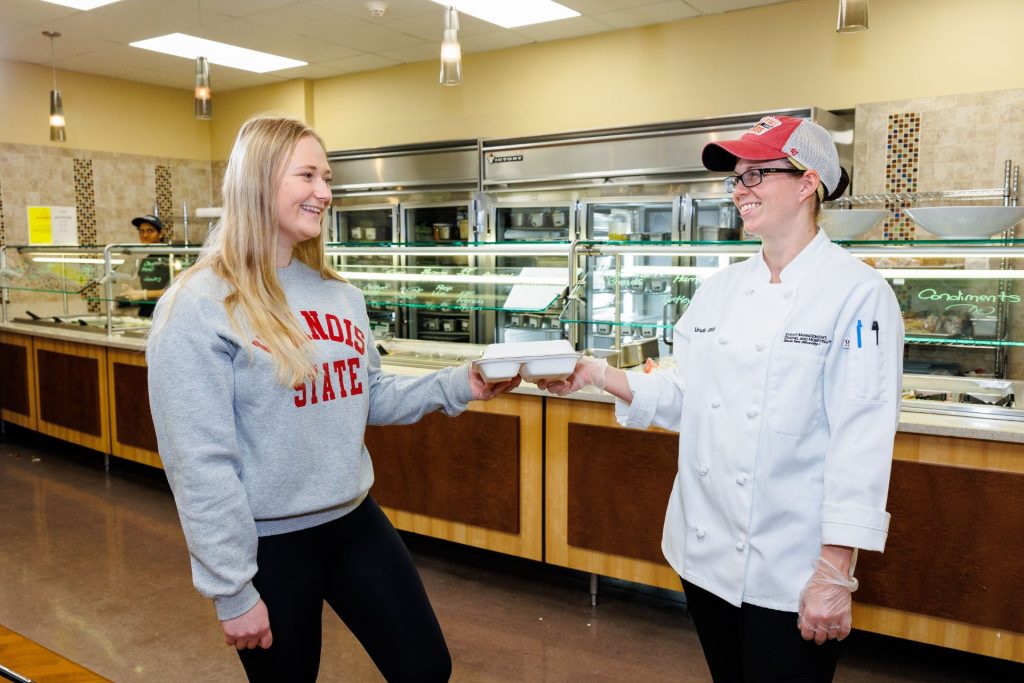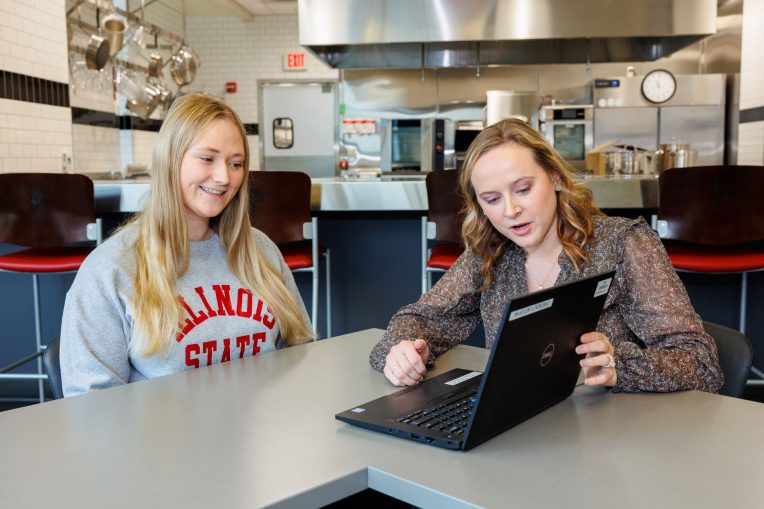Illinois State University dining facilities offer a vast array of foods and flavors for every appetite—and for every diet.
In a 2022 survey of Illinois State student meal plan holders, approximately 8% of respondents—nearly 500 students—self-identified as having a food allergy. Illinois State’s Department of Event Management, Dining, and Hospitality (EMDH) meets those students’ needs by providing resources and services that allow them to safely enjoy the many dining options available.
Resources include NetNutrition, an online menu database that allows patrons to select and filter out menu options that include specific allergens. NetNutriton users can also browse menu options by diet types, such as vegan, vegetarian, or halal.

“It’s our primary tool and the first thing we tell students about,” said EMDH Registered Dietitian Morgan Harm. “It really is the easiest way for students to see what options are available to them in real time, and if they want to plan ahead, they can do that, too.”
Illinois State dining facilities are furnished with ample signage, including brightly colored placards alerting diners to the presence of allergens. Signs with QR codes directing diners to NetNutrition are peppered throughout the facilities.
EMDH tours almost always include a stop at Station 8, a venue in the Watterson Dining Commons so named for the absence of eight common allergens: milk, eggs, fish, shellfish, tree nuts, peanuts, wheat, and soybeans.
Facility tours and maintenance of “Ask a Dietitian” online support are additional services provided by EMDH, but Harm spends the majority of her workdays providing special menu planning for students with specific diet plans managing conditions such as phenylketonuria (PKU) or celiac disease.
“Most students with dietary restrictions know what to do. They develop go-to options. But individualized meal plans are more than that,” Harm said. “We want to be able to offer other options beyond just having a salad.”
Harm is working with 11 students on special diet plans this year. She meets with them weekly to develop a menu, taking into consideration both the students’ preferences and their schedule for the week. Menus are submitted to dining staff, and special care is taken in preparing and delivering the meal to the student.
One of those students is junior Gabby Stopka, an elementary education major from Lake Zurich. Stopka has PKU, which requires a low-protein diet.

“The individualized meal planning service has allowed me to have more options and varieties of foods that I can eat without negatively affecting my health,” Stopka said. “I enjoy how the individualized meal planning service orders specific foods for me, so I have more options.”
Stopka is living off-campus this year but has continued with her student meal plan due in no small part to the special meal planning service she receives from Harm. The benefit to Stopka extends beyond having access to safe, nutritious meals; the guidance positively influences her mental health.
“I feel less anxiety because I know I will not have any allergic reactions since the meals were carefully and thoughtfully planned out,” she said.
Harm enjoys her work in EMDH. She builds real relationships with the students she works with and genuinely cares about their well-being—beyond the time they spend at campus dining.
“I enjoy building rapport with students because it’s helpful to have that personal connection,” Harm said. “It helps to have someone positive to talk with, whether it’s related to food or not, and I hope they see me that way.”

